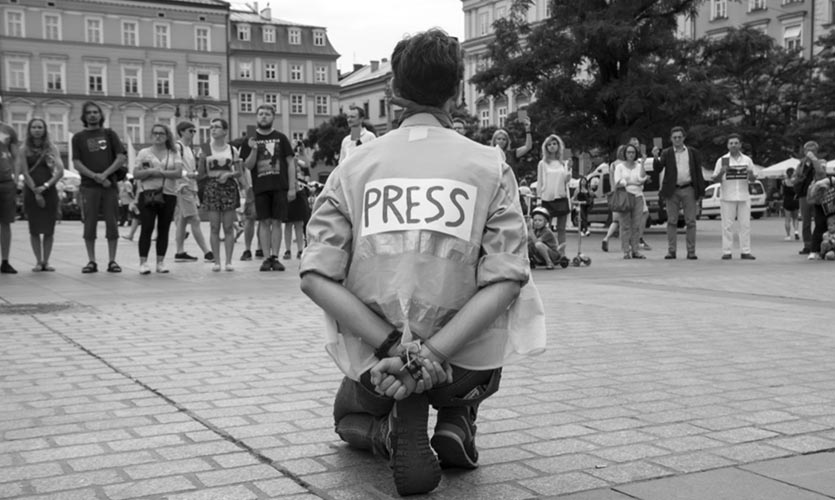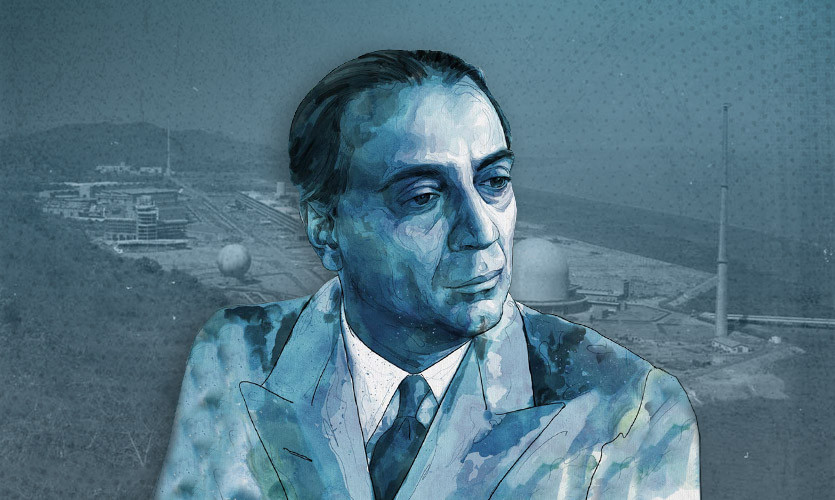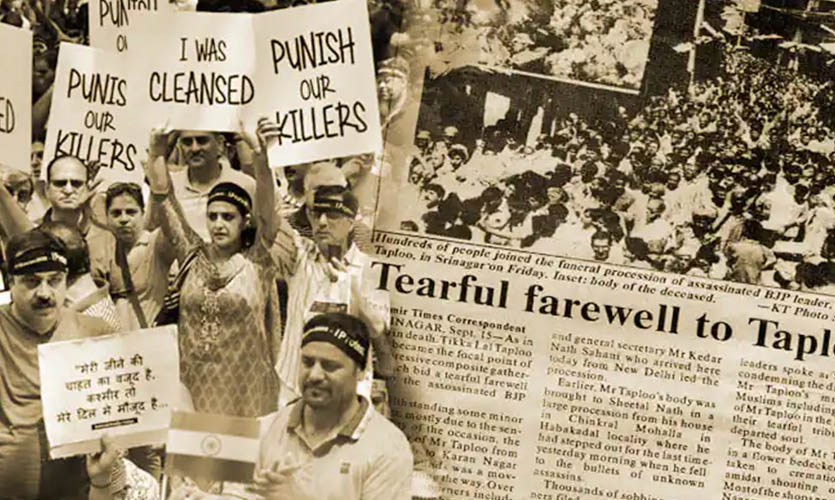Maintaining its position at the 142nd place in Reporters Sans Frontieres’ (RSF’s) World Press Freedom Index for 2021, India has been accused of waging a merciless war against journalism.
Global Decline
There is a general trend of decline in the freedom of the press, set in gradually, and off late fanned by the COVID-19 pandemic. While the continuous waning is worrying, using a worldwide health emergency as an excuse to curb the rights of journalists should draw more concern.
Although all countries barring the Nordic nations of Norway, Finland, Sweden, and Denmark have experienced deteriorating circumstances for free functioning media, Europe and the Americas remain comfortable. This is despite Donald Trump’s last year marking a record number of attacks against journalists, with 400 assaults and 130 arrests. The Middle East and North Africa continue to be the worst regions to practice journalism, along with Eastern Europe and Central Asia. “The Institute for Mass Information logged more than 170 physical attacks in Ukraine, representing three quarters of the press freedom violations registered in the country,” claims the RSF (re in English: Reporters Without Borders). This also includes Belarus, where there was a continued Internet shutdown, followed by intermittent blackouts. Among accounts of police brutality against protestors, there is also evidence of violence against media persons.
“A Russian national working for the Latvian online-newspaper Meduza, Maksim was forcibly disappeared for 40 hours after being arrested in the evening of 9 August. He was released – visibly bruised – only after public outcry and intervention by the Russian Embassy.”
Roman Protasevich, a Belarusian journalist who aligns with the opposition was jailed late last month, along with his girlfriend Sofia Sapega. Protasevich fled the country in 2019 but was arrested when the authorities diverted his plane to Minsk due to a supposed bomb threat by Hamas. The couple has been moved under house arrest, although boarded separately. Protasevich’s press conference appearances, the opposition alleges have been made under duress, as he seemed to reiterate that he has not been physically harmed.
“No matter what he says, let’s not forget: he is a hostage. And the regime is using him as a trophy.”
– Franak Viacorka, Senior Adviser to exiled Belarusian opposition figure Sviatlana Tsikhanouskaya
The blog run by Protasevich prior to his arrest – Belarus of the Brain – has claimed that his recent appearance is an example of the “strongest psychological pressure” put on the journalist.
The general Asia-Pacific region, RSF alleges, has been struck by the “censorship virus” which has spread beyond China. June 30 marked the completion of one year of the controversial national security law introduced in Hong Kong last year on the 23rd anniversary of its handover to China by the British. It was assumed then that it would curtail dissent and freedom of speech, and the past year has been a testament to just that from the violence doled out on young, pro-democracy protestors to the removal of Lennon walls and graffiti outlining political grievances. Activists of democracy have cited fears that “future generations will hear only the government’s version of events: that the 2019 protests were illegal riots by a minority of people who were manipulated by foreign forces to undermine the rise of China under the successful leadership of the Communist Party.”
The drop in the freedom of the press in the region has been blamed on several authoritarian regimes using “methods of totalitarian control of information”. The list includes North Korea, Vietnam, Thailand, Philippines, Indonesia, Cambodia, Malaysia, Singapore, Myanmar and Pakistan.
Other countries in the region have been accused of a more systematic repression of information, including India which, the RSF says, uses existing laws strategically to float the pro-government narrative.

India’s Regression
Among the pretexts the RSF alleges India of using, the most common are “sedition”, protection of “state secrets” and “national security”, where journalists can be labelled as anything from “anti-national” to “pro-terrorist”. The report remarks the prevalence of pro-government mouthpieces in the media who promote party propaganda, and calls out the Narendra Modi-led Bharatiya Janata Party (BJP) government, insinuating that the party supporters and activists engage in “extremely violent social media hate campaigns [against journalists who dare to criticise the government] that include calls for them to be killed, especially if they are women”.
According to the shutdown tracker used for a report by the #KeepItOn campaign, India has been topping the “global shame list” of the most number of internet shutdowns for the last three years, with at least 109 cuts in the state of Jammu and Kashmir, in 2020 alone. The state’s home department website displays an unending list of government orders that even call for temporary shutdowns of telecom services that includes voice calling and SMS services. The reasons most often cited are of precautionary measures or national security, but researchers seem to disagree.

A recent post by Scoopwhoop on Instagram, drew similarities between the 1975 emergency imposed by the Indira Gandhi regime and the Narendra Modi-led current government, asserting that India is under an undeclared emergency. Centralisation of power, rise in arrests and attacks on journalists and opposition leaders, disregard of right to life and liberty, are the few similarities drawn by the article that stand to reason. “Levelled hatred towards a minority all in the name of religion,” as the post states, is a claim worth contesting as the blame for religious violence historically falls on all sides and continues to be true.
Arrests under the Unlawful Activities (Prevention) Amendment Act, 2019 (UAPA) is another aspect that has invited flak on the current Indian government. The Delhi High Court recently granted bail to student activists Natasha Narwal, Devanagana Kalita and Asif Iqbal Tanha who were arrested under the UAPA following the northeast Delhi and Jamia University riots in 2020. The UAPA is essentially an anti-terrorism law, which has been amended time and again since 1967. Apart from condemning the unconstitutionality of the law, primary objections to it entail the categorisation of individuals as terrorists without an objective criteria, violation of the principle of “innocent until proven guilty”, granting those ranked as inspectors and above investigative powers. “A Review Committee to ‘denotify’ the individual notified as a terrorist is also constituted by the Central Government thus removing all the chances of any institutional mechanism for judicial review,” notes Jurist.
According to the Wire, Narwal and Kalita were first arrested for taking part in peaceful anti-CAA protests, and then rearrested under the UAPA for allegedly inciting communal violence. However, “it is not clear how it [the police] believes the sections of the Act mentioned in FIR 59/2020 apply to Narwal or any of the other anti-CAA activists,” states the report. The court order releasing the activists noted, “in its anxiety to suppress dissent, in the mind of the State, the line between the constitutionally guaranteed right to protest and terrorist activity seems to be getting somewhat blurred. If this mindset gains traction, it would be a sad day for democracy.”
Aisi Taisi…?
Checks are important. For example, given the easy access and end-to-end encryption that WhatsApp provides, people can effortlessly use it to put forward their version of the news, wherein lies the trouble. From investment scams to false information about a government COVID-19 relief fund, from government entities manufacturing hate against minorities to anti-establishment entities manufacturing hate against the government. WhatsApp not only allows access but also protection to perpetrators with its privacy laws, which are currently under the scrutiny of the Indian government. The importance of controlling the spread of fake news via social media and stopping misinformation especially when in the interest of national security, is undebatable. But a crackdown on free media cannot be used to prove the point. India’s advent into international relations has proved the most beneficial for securing the country and its people’s safety. But has it been at the expense of ignorance of problems within?
India is in a mode of constant geopolitical shifts. With China becoming a force to be reckoned with and the US showing vested interest in India’s strategic placement as it’s only wilful ally in the region, it might be nothing short of necessary for the BJP-government to maintain its current show of strength. Moreover, when it comes to Kashmir, a highly volatile conflict zone clubbed with internal political instability can be seen as two reasons too many to justify a media black out and curb irresponsible reporting.
In the broader spectrum and global eye however, it boils down to the principle. While checks and balances are important, free media are watchdogs of the government and will continue to be an important pillar and signifier of a democracy. India’s gradual backslide into a “partly free” country under Prime Minister Modi, unlawful harassment of reporters – not to mention the occasional killings, silencing of a free functioning opposition, and allegedly keeping in line with the likes of Brazil and China, are slowly but surely setting a dangerous precedent for the future of journalism in the country. However, we as media need to remember that this precedent can be both ways.
The Horus Eye is a weekly column written by Divya Bhan analysing current affairs and policies. This column does not intend or aim to promote any ideology and does not reflect the official position of The Sparrow.
Also read: Revisiting J&K’s Reorganisation And Article 370
Also read: The Curious Case Of Compassion Fatigue With The Rohingyas










